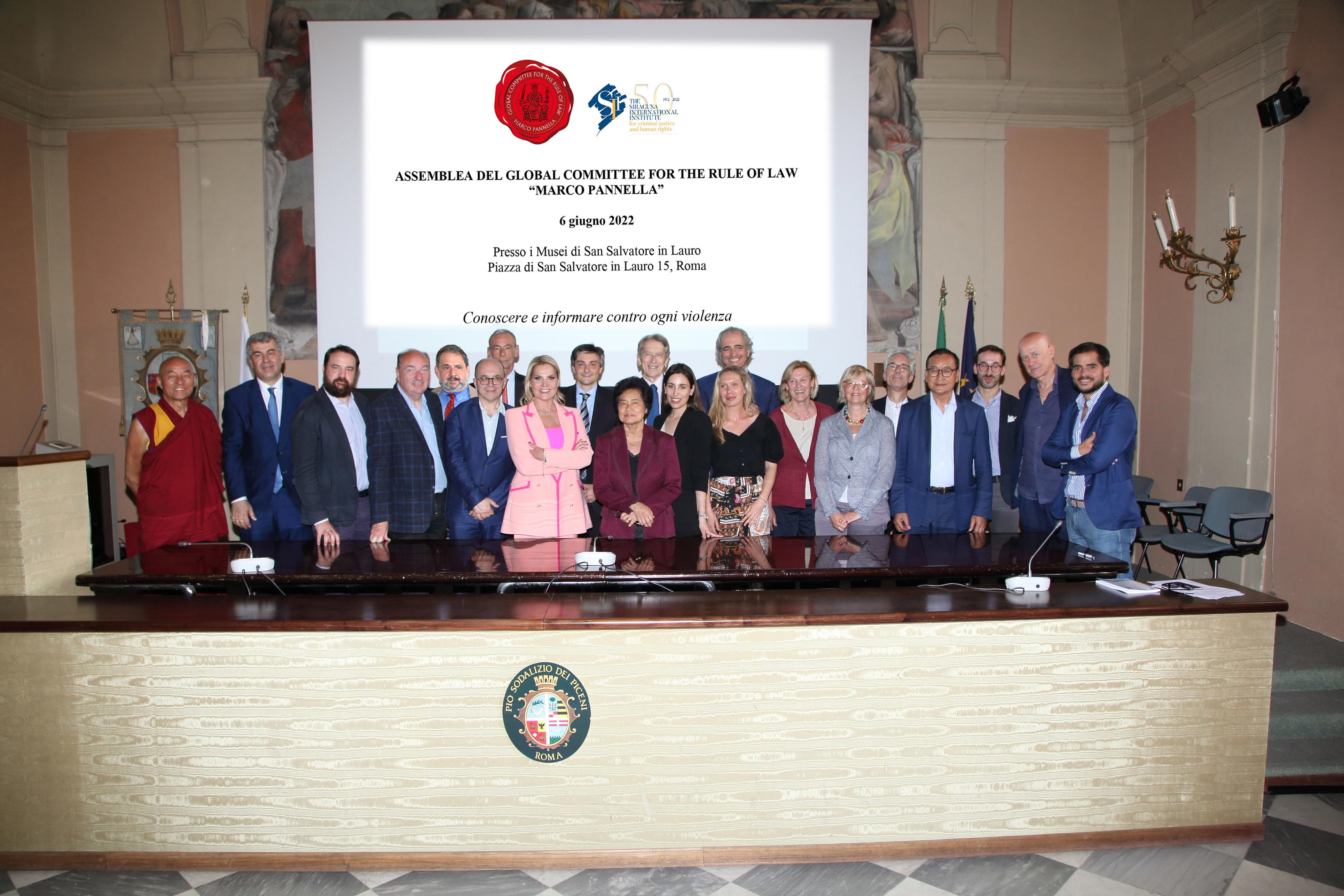The first Assembly of the Global Committee for the Rule of Law “Marco Pannella”, held in Rome on 6 June 2022, ended with the adoption of the Rome Declaration for the Right to Know which all participants signed up to.
Whereas:
– authoritarian regimes pose a serious threat to global peace, security and prosperity;
– the freedom to inform and be informed is the basis of every freedom and foundation and guarantee of liberal democracy;
– propaganda and disinformation are tools for manipulating public debate and meddling in democratic life
Convinced:
– that it is necessary to protect citizens from the influence of propaganda and disinformation generated and diffused by vested interests;
– of the urgency of promoting a culture of knowledge, as a pillar that restores citizens’ power to govern societies democratically;
– of the need for democracies to defend the principles of the rule of law from the aggression of authoritarian regimes;
We, the undersigned, ask:
– governments and parliaments to commit to a strong and effective follow-up, at the United Nations, to the Resolution and Recommendation of the Parliamentary Assembly of the Council of Europe approved in June 2021 which recognize the Right to Know as a human right;
– governments and parliaments to make decision-making processes and the life-cycle of laws and regulation more transparent thus allowing a greater ability to verify their evidence base and make decision-makers accountable;
– parliaments to commit to the creation of tools to monitor information and the evidence-base of the decisions taken by the executive;
– all citizens to demand the adoption and implementation of policy instruments that deliver on the defense and promotion of the Right to Know, across the whole of government and in every moment of the democratic life, following the Resolution and Recommendation of the Council of Europe;
– all institutions to place among their highest priorities the support of human rights defenders who promote universally recognized fundamental freedoms;
– a firm commitment of governments, parliaments and citizens to support national and international jurisdictions with the utmost concern, as privileged places for the production of knowledge about serious international crimes.

